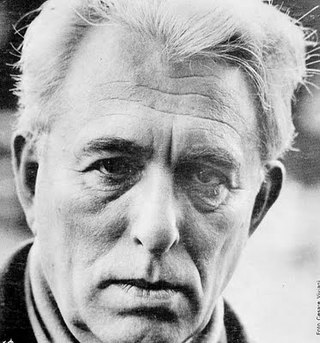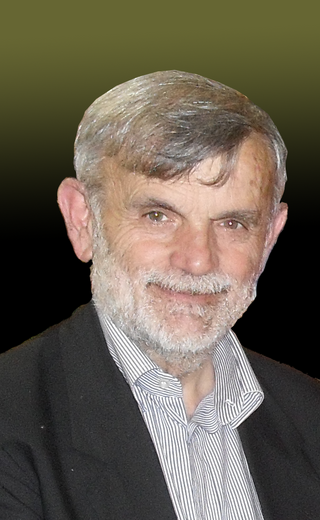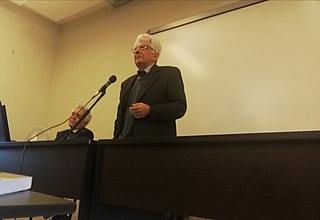This article includes a list of references, related reading or external links, but its sources remain unclear because it lacks inline citations .(October 2012) |

Luigi Berzano (born 8 July 1939, Asti) is an Italian sociologist and Catholic priest.
This article includes a list of references, related reading or external links, but its sources remain unclear because it lacks inline citations .(October 2012) |

Luigi Berzano (born 8 July 1939, Asti) is an Italian sociologist and Catholic priest.
He is national coordinator of the Scientific Council of Religion Section of the Italian Association of Sociology and, since 1992, president of the Center for Studies on New Religions (CESNUR) . He is full professor at the Department of Cultures, Politic and Society of the University of Turin. He collaborates with the Faculty of Theology and Rebaudengo University in Turin. Since 2005, he is member of the Scientific Council of the Journal Studi di Sociologia of the Catholic University of Milan.
His research focuses on religious pluralism and freedom in multicultural societies, particularly in relation to individual and collective religious experiences. In this field, he conducted researches on spiritual movements such as New Age and also on historical religious minorities. In Sociologia dei lifestyles, he developed a new theory relating to the practices and collective behaviour in the religious field.
In 2010, he founded Osservatorio sul Pluralismo Religioso in Turin, which has recorded about 150 religious groups and forms in the metropolis of Turin, dividing them in five categories: groups with Judeo-Christian and Pentecostal Churches origins, groups and movements with eastern origins, groups founded in the West (New Age, esoteric and ufological groups, Damanhur) and Islam. He is coeditor of the Annual Review of the Sociology of Religion (Brill, Leiden-Boston).

Massimo Introvigne is an Italian Roman Catholic sociologist of religion and intellectual property attorney. He is a founder and the managing director of the Center for Studies on New Religions (CESNUR), a Turin-based organization which has been described as "the highest profile lobbying and information group for controversial religions".
Gianni Baget Bozzo was an Italian Catholic priest and politician.
Ludovico Geymonat was an Italian mathematician, philosopher and historian of science. As a philosopher, he mainly dealt with philosophy of science, epistemology and Marxist philosophy, in which he gave an original turn to dialectical materialism.
Nicla Vassallo, is an Italian analytic philosopher with research and teaching interests in epistemology, philosophy of knowledge, theoretical philosophy, as well as gender studies and feminist epistemology. She is currently (when?) a Full Professor in the Department of Philosophy at the University of Genoa, a Research Associate of National Research Council, and on List of alumni of King's College London. She also is a poet and lives in Rome.
Giorgio Bàrberi Squarotti was an Italian academic, literary critic and poet. He taught at the University of Turin from 1967 until his death in 2017. He was considered to be one of the most important literary critics of his time.
Luigi Pareysón was an Italian philosopher, best known for challenging the positivist and idealist aesthetics of Benedetto Croce in his 1954 monograph, Estetica. Teoria della formatività, which builds on the hermeneutics of the Austrian philosopher Ludwig Wittgenstein.

Tommaso Palamidessi was an Italian esotericist. Drawn to astrology, parapsychology, and yoga-tantric doctrines, he was active in the field of the occult and developed a form of Esoteric Christianity that he called Archeosophy. In 1968, he founded the Archeosophical Society in Rome, which is still active and has several thousand members in Italy and the rest of Europe.
The community of Chinese people in Italy has grown rapidly in the past ten years. Official statistics indicate there are at least 330,495 Chinese citizens in Italy, although these figures do not account for former Chinese citizens who have acquired Italian nationality or Italian-born people of Chinese descent.

Alessandro Barbero is an Italian historian, novelist and essayist.
Alberto Melloni is an Italian church historian and a Unesco Chairholder of the Chair on Religious Pluralism & Peace, primarily known for his work on the Councils and the Second Vatican Council. Since 2020, he is one of the European Commission's Chief Scientific Advisors.

Michele Sorice is an Italian sociologist and political scientist known for his work in the fields of political communication, political science and critical media studies. He is the author of over 25 books and 50 articles.

Franco Fortini was the pseudonym of Franco Lattes, an Italian poet, writer, translator, essayist, literary critic and Marxist intellectual.
Antonio Bueno was an Italian painter of Spanish origin, who acquired Italian citizenship in 1970. He was born in Berlin while his journalist father was posted there by the newspaper ABC of Madrid.
In 2000 Paolo Brescia and Tommaso Principi established the collective OBR to investigate new ways of contemporary living, creating a design network among Milan, London and New York. After working with Renzo Piano, Paolo and Tommaso have oriented the research of OBR towards the integration artifice-nature, to create sensitive architecture in perpetual change, stimulating the interaction between man and environment. The team of OBR develops its design activity through public-private social programs, promoting – through architecture – the sense of community and the individual identities. Today OBR is group open to different multidisciplinary contributors, cooperating with different universities, such as Accademia di Architettura di Mendrisio, Aalto University, Academy of Architecture of Mumbai and Mimar Sinan Fine Art University. Among the best known works by OBR are the Pythagoras Museum, the New Galleria Sabauda in Turin, the Milanofiori Residential Complex, the Children Hospital in Parma, the Galliera Hospital in Genoa, the Lido of Genoa, the Ex Cinema Roma, the Triennale di Milano Terrace. The under construction projects by OBR include the Lehariya Cluster in Jaipur, the Jafza Traders Market in Dubai and the Multiuse Complex Ahmad Qasir in Teheran. OBR's projects have been featured in Venice Biennale of Architecture, Royal Institute of British Architects in London, Bienal de Arquitetura of Brasilia, MAXXI in Rome and Triennale di Milano. OBR has been awarded with the AR Award for Emerging Architecture at RIBA, the Plusform under 40, the Urbanpromo at the 11° Biennale di Venezia, the honourable mention for the Medaglia d'Oro all'Architettura Italiana, the Europe 40 Under 40 in Madrid, the Leaf Award overall winner in London, the WAN Residential Award, the Building Healthcare Award, the Inarch Award for Italian Architecture and the American Architecture Prize in New York. Since 2004 OBR has been evolving its design parameters according to the environmental and energy certification LEED and since 2009 OBR is partner of the GBC.

Roberto Cipriani is an Italian social scientist. He is professor emeritus of sociology at Roma Tre University. "He has written extensively on popular religion, the sacred and secularization", and is known for his unconventional applications of the "concept of 'diffused religion' and then that of 'religion of values' ". He has made analytical contributions to the concept of diffused religion by using grounded theory. "He also underlines what he calls the 'meta-institutional' character of this religion, even if, he says, these characteristics have a religious institutional origin".
Luigi Firpo was an Italian historian and politician.

Alberto V. Febbrajo is an Italian legal scholar and sociologist.

Giorgio Pacifici is an Italian sociologist.

Guido Ceronetti was an Italian poet, philosopher, novelist, translator, journalist and playwright. He was born in Turin, Italy.

Franco Loi was an Italian poet, writer, and essayist. He was born in Genoa, and died in Milan, aged 90. He made his debut in 1973 as a poet using dialect and had a good success with the work I cart, and the following year, 1974, with Poems of love. In 1975 the poet proves to have reached complete maturity of expression with the poem Stròlegh, published by Einaudi with a preface by Franco Fortini. In 1978 Einaudi published the collection Teater and in 1981 the work L'Angel followed by Edizioni San Marco dei Giustiniani. Also in 1981, thanks to the collection L'aria, he won the "Lanciano" national prize for dialectal poetry. In 2005 he published L'aria de la memoria for Einaudi, in which he collected all the poems written between 1973 and 2002. He has been Honorary President of the Contemporary Arts Centre of Cilento and Milan founded in 2019 by Menotti Lerro, and, starting from 2020, member of the Empathic School Movement / Empathism. In 2019 he won the Cilento Poetry Prize conferred to him at Accademia di Belle Arti di Brera.